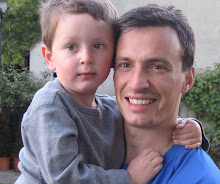If you are going to do something that is hard, you better
have a clear idea of why you are taking that course of action. Especially when
it comes to running. Every reason you can find to persist is like a stave
preventing a house from folding. So, this blog is part of my race strategy!
I picked up running in my early 30s and I haven’t
stopped. It’s been a brilliant way for
me to process and organise my thoughts, deal with difficult emotions, build
friendships and experience new vistas.
So, I’ve decided to try to run the South Downs Way 100 miles
race in June and raise vital funds for the Mental Health Foundation, which I have
the privilege to work for.
The goal is to complete the course in under 24 hours. I’ll
need to get roughly 15,000 calories into my body, climb 12,700 feet and take at
least 160,000 steps to reach the finish line. I know that if you give, every
single donation will be another reason for me to keep going.
But why on earth go for 100miles? Well, there are a few reasons…
Running to remember
Despite so much being spoken about mental health, we are
still in foothills of understanding how to protect and support our mental
health – and what that means for us as individuals, communities and as a
society. We still find it difficult to
ask for help and too many of us have lost too much and endured too much to push
this issue to the back of our minds.
Almost ten years ago, I lost my brother Daniel to suicide. It was a shattering tragedy that I am still
learning to live with. I want to keep remembering my wonderful brother
and finding ways to turn that terrible event into something that also brings consolation
and healing.
This run will be a visible sign of my commitment to a future
where we are able to prevent more distress and to support each other to experience
good mental health more of the time. As
the CEO of the Mental Health Foundation, I passionately believe in the need for
more investment in preventive action on mental health and your support will enable
us to do that.
A sense of adventure
I’ve always loved adventure, seeing new places and taking on
challenges that tested me. This yearning
for adventure has grown, especially after the last two years we’ve endured.
Last year, I completed my first 50mile race. In the pain of
the aftermath, I made my family promise not to let me run a 100-mile race. I
was convinced the combination of another 50 miles and the sleep deprivation
wouldn’t be good for me and I may have been right!
And yet, I’ve decided to lace up again. The promise of adventure and all the comradery and fun that comes with it - is probably the biggest motivation. It’s my way of feeling fully alive.
Daring Greatly
The feeling of relief and pride in taking on something I
found really difficult have been some of the best moments of my life.
Buried in the human psyche is the need to have something we value to work for. We deeply need to
find and give meaning for our lives – and personal or professional goals are a
good way to achieve this. We talk a lot about the value of our work/life
balance, but I prefer to think of it as having work/life ‘energy’. I need things in work and out of work that
give me fresh impetus, perspective and a sense of progress and they fuel my
activities in other aspects of my life.
Goals help me settle my restless soul and I’ve noticed that as I have
done so, the ruptures of existential angst have receded.
A feeling of anchoring
There is an essentialism to running long distances. The ego
fades. You are left with your bare humanity in a state of complete exhaustion
and that’s a great place to be! There’s something about the physical
vulnerability of running long distances that gives me clarity and reminds me of
what’s really important and what I value most in the life. In everyday life, it
can be easy to lose track of that. There are so many distractions and I find
running helps position what and who I care for, right at the centre of my
attention.
So, there are my reasons; to remember, to adventure, to do
something difficult and to anchor myself. Seems like four very good reasons to
take on this 100-mile challenge. Please
do support me and give generously on my fundraising
page.
Your help will enable us to expand our Covid-19 advice hub and to keep
using the evidence from our study that tracks the pandemic’s effects on
mental health, to inform and influence governments and other decision-makers.
We will grow our Covid Response Programme, which across the UK is responding to
the needs of people who, research suggests, have been worst affected by the
pandemic.
I’d be really grateful for your support.
ENDS



